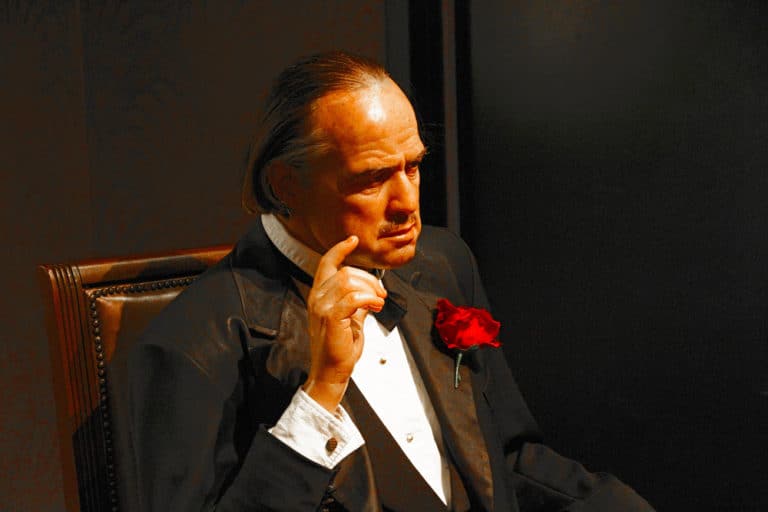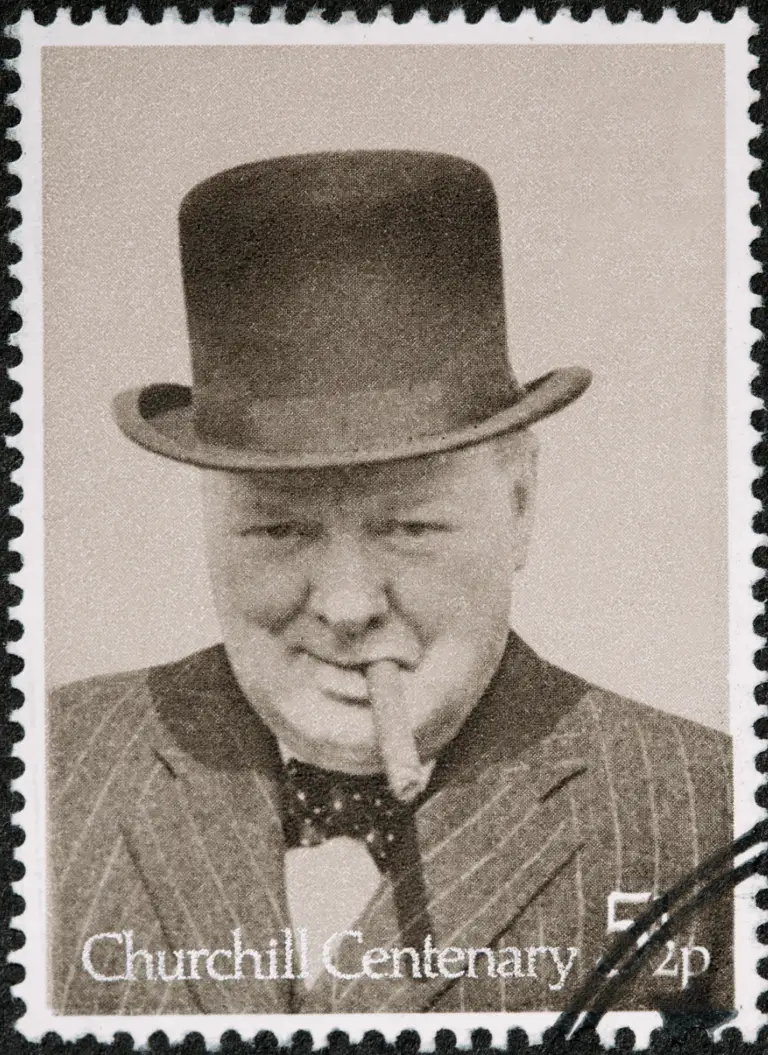How Do Winners Think? 7 Keys To A Dangerous Mind
Introduction
Here’s a fun quiz to kick things off.
Which famous American once said, “Never give up”?
did you get it?
That’s right!
F-cking everyone!
I noticed that most winners think alike. Often, the highest performers in unrelated fields share all the same philosophies on life.
I wanted to understand these common threads between winners. So I researched athletes and business people, from start-up investors to marathon swimmers.
Here are 7 powerful mindsets that all winners share.
Use these wisely to change the direction of your life.
Winners fight for the smallest victories
When I was a teenager, I was a powerlifter. Here’s a picture of me, trying to qualify for a national competition.

In any sport, whether you win or lose ultimately comes down to your preparation. You determine the outcome of a competition in the months and years leading up to it.
In powerlifting, no one is ever robbed of a victory. You either lifted the heaviest weight or you didn’t.
It’s 100% on you and you know it.
I did end up qualifying in this competition. I was a winner. But really, 99.9% of the “winning” was not done in front of the crowd on that day.
I trained 5-7 days a week for months for that contest.
I’d been lifting weights since I was 15.
I’d been tracking my meals on myfitnesspal to make sure I was eating right.
After I put in all that work, turning up and performing felt easy.
I knew I was strong. I’d watched myself become stronger and stronger over years.
I’m gonna assume you’ve got a huge vision for how you want your life to play out.
Maybe you’re an athlete, with dreams of Olympic gold.
Or a young wantrepreneur, hoping to hit it big in business.
Although it’s the big wins we want, the winners of the world know that big wins don’t just fall from the sky.
“I was just minding my own business one day, then I decided to start a company and I made a million dollars!
There I was, walking the dog, then out of nowhere I became a pole-vaulting world champion!
I was playing call of duty with the boys, drinking beer out of one of those beer hats, and then I got on the cover of men’s health magazine!!”
Ask any winner about how they became successful. It will never sound like this.
In the real world, anyone who won big in public first stacked thousands of small boring victories in private.
For the athlete, there are all the grueling training sessions. Consistent dieting. Endless sacrifice. Hours of stretching and injury prevention. Years of gradual unremarkable improvement.
For the entrepreneur, there are plenty of failed ventures and mistakes. Years of dealing with risk and uncertainty, and the doubt of friends and family. There’s endless pitching, sales calls, meetings, and lonely hours staring at a computer.
We all want success. Everybody wants to win in theory.
Real winners know that true success is made from thousands of tiny victories.
They fight for every one of those small wins.
Winners really listen to people

Satya Nadella was the man to succeed Steve Ballmer and Bill Gates as the CEO of Microsoft.
His current net worth sits somewhere between 350 and 900 million dollars.
It’s really something to start as an engineering student in central India, and end up in charge of the third largest company in the world.
What can we learn from Nadellas success?
Here is a quote from an interview he did with the Wall Street Journal.
“Listen more, talk less, and be decisive when the time comes”
The winners of this world listen to people.
It seems like such a no-brainer. We should all listen.
But most of us don’t. Not nearly enough.
You might think that this point doesn’t apply to you. That you’re a pretty good listener.
Are you listening? Or are you waiting for your turn to talk about yourself?
Are you listening? Or are you trying to look like you know what you’re talking about?
Are you listening? Or have you decided deep down that the person who is talking is less knowledgeable than you are?
Maybe you’re doing all 3 of these at once?
I’m no saint here. I’ve done all of these many times in my past. Truly listening with no agenda is not an easy thing to pull off.
And yet, if you can get there, everybody wins.
You win, first and foremost, because you get to learn from the experiences and mistakes of others. You can gain insight that could help you to make better decisions.
They win, as the person speaking because someone is listening to them. They can talk aloud to clarify their thoughts. They feel respected. Listening makes others feel good.
If were trying to pick the guy with the highest net worth out of a group of guys I didn’t know talking about business, I would look for the quiet guy asking all the questions.
That’s usually the guy who knows the most.
And in business, the guy who knows the most usually has the most.
Winners have “level 12 intensity”

Level 12 intensity describes a state of being that most of us haven’t experienced for ourselves.
In order to make big things happen, winners often have to go beyond what you or I might consider reasonable.
When someone operates in this way, you get a sense that you could take everything they have away from them. They would find a way or make a way to get it all back.
It’s something about how they think and work.
They drive themselves in a way that most of us just don’t.
This phrase wasn’t coined by me. It was used to describe entrepreneur Suleman Ali, on the My First Million podcast.
Shaan Puri describes the time that he first saw the “level 12 intensity” of Ali. They were investing in a business together, and the company was struggling to raise money.
Ali gave the founders of the company detailed feedback to improve their deck (a pitch used to raise capital) and then scheduled another meeting for just 5 hours afterward. He ended up doing this twice a day, every day, for 5 days straight.
Puri, a very successful entrepreneur in his own right, remembers being blown away by this kind of intensity.
“I’d never met with the same person twice in one day before. So then I found out thay my nob wasn’t even at 10, it was at 7, and this is what 12 feels like…by the end, I mean they hated us, but their whole business was different”
A huge lesson from this story is that everyone feels like they are doing their best. It often isn’t until we come across someone who operates at a higher level than us, that we realize how much more we have to give.
To think more like a winner, get around people who can work at that level of intensity. If you can see what being driven really looks like, you can be influenced to leave less of your own potential on the table.
Winners have faith

Faith. Self-confidence. Conviction in your abilities.
Whatever you want to call it, you’re going to have to have plenty of it.
Success, as you might have heard, can take an ungodly amount of persistence. And in order to have the balls to persist, you are going to need to believe in your own ability.
When Lewis Hamilton was 10, he was a talented young kart driver. He won the British Karting Championship, (the youngest ever to do so), and at the award ceremony his father pointed out Ron Dennis.
Dennis ran the Maclaren Formula 1 team, the world champions at the time. A 10-year-old Hamilton walked straight up to him and tapped him on the arm.
“Hi, I’m Lewis, and I’ve just won the British Karting Championship, and one day I want to be Formula 1 World Champion in your car”.
Dennis spoke to him for a while, finishing with the words,
“Call me in 9 years”
In 2008, 13 years after that conversation, Lewis Hamilton won the first of his 7 world championship titles, driving one of Dennis’ Mclarens.
Many great athletes and Entrepreneurs, knew who they would become long before we ever heard their names. They backed themselves.
When you’re a kid learning to walk, you get the loving encouragement of your parents cheering you on.
“You can do it! You’ve got this! Try again!”
With your dreams, sadly, you don’t get these voices of encouragement.
You have to learn to motivate yourself. You need to be sold on your own ability to win.
Here are a few ways that you can adopt this mentality.
Act like winner
The first way to build your faith is by building your work ethic.
Confidence from action.
When I work out for hours on end, I feel like I can destroy any man.
When I spend hours working on my website, I walk away sure that it will succeed eventually.
When I work hard in restaurants, flat out all day for weeks, I feel like a cooking machine.
You put in real work, in anything, and immediately your confidence builds.
The more you work, the more confident you get.
Choose your company
Another way to build your faith is by getting around positive confident people. People who believe in themselves, and people who believe in you.
Sometimes, people don’t have faith because they are surrounded by people who don’t have faith.
Energy is contagious, and so is confidence.
When all else fails
These two strategies are both powerful, but they will not always be there.
Sometimes in life, you’re going to have to believe in yourself when it seems that there is no good reason to do so.
You believed, you tried, you failed.
You had the opportunity, and you squandered it.
You did your best, and it wasn’t good enough.
The people around you don’t believe.
These are the times when you need faith more than ever. You will need to find a way to believe in your own strength, intelligence, and courage, when you feel weak, dumb, and scared.
It’s just a choice you make.
When I’ve felt like this in the past, I try to recall some of my past wins. Exams I smashed, Jobs I got, situations where I performed under pressure.
All my most heroic moments.
From this state of mind, it becomes easier to see myself as a winner and do what needs to be done.
Whatever happens, never let yourself lose faith. Losing faith in yourself is devastating.
Winners avoid almost everything
So Winners work with level 12 intensity, for hours and days and weeks on end.
How?
They are limited like you and me. They have all the obligations that everyone has.
The answer lies in what they don’t do.
“Most champions do not have something that you do not have, they lack something that you have”
Alex Hormozi
We are all busy. We all work hard. But look at the screen time on your iPhone. Look at how long you spend on Netflix. Look at how much you party. Most people work hard, but most people do all sorts of other things as well.
If you just didn’t do all those other things, you would unlock anywhere between 2 and 8 hours of extra time per day.
I used to think that most people are Lazy. Most people just waste their lives on social media. But then I read Stolen Focus by Johann Hari, and my perspective changed slightly.
The book explained how there are teams of brilliant engineers at Google and Facebook and Instagram, doing whatever they can to increase user engagement.
Engagement – how long you spend looking at your screen.
This is their north star. Their most important metric. They have spent years honing how addictive their platforms are for people.
The more data they get about you, the more they can target you. Therefore, as time goes on they get better and better at stealing your attention.
It’s therefore not as simple as “people are lazy”.
People are attacked.
That said, it’s still down to us to take control of where our time goes.
Tim Foster won a gold medal in the Sydney Olympics in 2000, after having a major operation on his back just 6 months before the competition. In a Ted Talk he gave in Switzerland, he recalled the mindset he adopted to recover from his operation.
“I would only do things that made me faster. And ok, that meant dedication to training, that meant hard work for sure, but also sometimes that meant an evening off…If it would mentally refresh me then yes I would do it. But it was on the understanding that I would only do things that made me faster”
Foster became single-minded. He only did things that got him closer to his goal, and he avoided everything else.
Complete focus.
That’s a winner.
Winners think for themselves
This really ought to be step one.
It’s hard to go against “common sense”, but you’re going to have to figure it out.
You can’t get far beyond mediocre results with the mentality of your parents and friends.
Some people call it escaping the matrix. Others call it following your intuition.
Whatever you want to call it, start to trust the voice in your own head over all the other voices screaming at you.
This doesn’t mean don’t learn, and this doesn’t mean assuming you have all the answers about life.
It means learning to think critically and seek the right advice.
How to think for yourself
Here’s an exercise that I have done a few times over the years
It’s not something I invented. Maybe you’ve found yourself doing something like this in the past.
Go to a grocery store, or a mall, or somewhere else with a good mix of people.
Have a good look at all the men. (I guess women if you’re a woman).
If you saw nothing but fit, strong, healthy men with beautiful families, plenty of money, laughing with their wives and kids – maybe common sense would mean something.
Unfortunately, if your city is anything like my city, you don’t see anything close to what you would consider success.
Here’s what I’ve found:
Most men with families look fat and broke. They look stressed and desperate and like they’re doing something they don’t want to do.
50-year-old couples are arguing like teenagers.
So many people are in horrible shape. Like maybe 50% of people are fat or skinny or both.
Everybody looks absolutely exhausted.
This is your common sense. These are the people giving you advice about how to live a good life.
Maybe it sounds harsh and judgemental. I know these are probably well-meaning honest people and it’s not like they aren’t trying to live right.
But you cant seek advice from anyone who offers it like everybody out here’s a winner.
It just isn’t true.
Winners never give up

I know.
I know you’ve heard this over and over.
Winners never give up.
If there was something else that I could write about, I would.
But this is fundamental.
This is winning 101.
Think about the classic winner’s story.
They have a normal desperate life.
They have a vision.
They have the courage to pursue it.
They try, they fail, they try, they fail, they try, they fail.
They persist and persist, and refuse to be told no by the world.
They learn along the way, they keep their faith, and eventually, they find a way to succeed.
Roll the titles.
How would this story end, if giving up was an option?
If there was some given level of resistance, beyond which point the winner just gives up on the vision and gets a job in Walmart?
What kind of weak-ass story would that be?
Here’s what a better story sounds like.

Diana Nyad began swimming seriously in the seventh grade. She won 3 Florida State High School Championships in the backstroke and dreamt of swimming in the 1968 summer Olympics.
But in 1966 she suffered from endocarditis, an infection of the heart. When she eventually began swimming again she had lost significant pace.
When Nyad started college, she resumed swimming, focusing on distance events. She set a women’s record in her first 10-mile race, in 1970.
Between 1974 and 1979, Nyad made all kinds of headlines.
She broke the record for the 28-mile swim around manhattan island, and the record for the 22-mile Bay of Naples race. In “her last competitive swim” Nyad broke the open water distance world record (for both men and women) by swimming 102 miles from the Bahamas to Florida.
She was supposed to retire, but something kept her awake.
In 1978, she had attempted to swim from Cuba to Key West. People have been trying to swim that stretch of water since 1950, but it had never been done. After swimming in a shark cage for nearly 42 hours, doctors pulled her out of the water. Strong winds were slamming her body against the cage, and pushing her off course towards texas.
So after 33 years of official retirement, she tried again. To swim a stretch no man or woman had ever successfully swam. Aged 60.
Nyad and her team trained hard for the attempt. She would swim for 8, 12, 14, even 24 hours at a time. She got a fishing boat to take her 40 miles out to sea, jumped overboard, and swam 30 miles back to shore before getting back on the boat.
On the 7th August 2011, she went for it again. After 29 hours, Nyad stopped the attempt. Strong winds had pushed her way off to the east, her shoulder was in pain, and her asthma flared up. By the end, she was swimming 3 or four strokes and then rolling on her back to catch her breath.
On 23rd September 2011, she went for it again. After 41 hours, she stopped the attempt. She had been stung by box Jellyfish and Portuguese-men-of-war to the point where she couldn’t breathe.
On the 18th august 2012, she went for it again. She ended the attempt after 2 storms and 9 jellyfish stings, but this was her best attempt so far.
On the 31st August 2013, she went for it again. She had a silicon mask made to stop the jellyfish. In 53 hours, Nyad completed the 110-mile swim. Aged 64.
She gave a TED talk describing her experience. Here is what she had to say when she achieved her goal.






